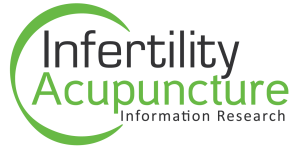Can acupuncture improve embryo quality?
The short answer is yes, acupuncture can improve embryo quality. Now let’s have a look into study details.
Dr Rashidi and his team explored if acupuncture can improve pregnancy rates for PCOS patients undergoing IVF and ICSI. As a result, they found that acupuncture can improve embryo quality.
Unfortunately, there was no difference in pregnancy rates. Seems that acupuncture made a positive difference, but the effect was too small to improve pregnancy rates. Can it be that acupuncture protocol was not optimal?
For example, in previous studies, PCOS patients saw significant changes after 14 acupuncture treatments. In the meanwhile, Dr Rashidi’s IVF study had only five acupuncture sessions. Would we have better pregnancy rates if women had at least 14 treatments? Well, we need a well-designed study to find out.
Despite all this, it’s an important discovery that acupuncture may improve embryo quality for PCOS patients. Read the full study here.
Effects of acupuncture on the outcome of in vitro fertilisation and intracytoplasmic sperm injection in women with the polycystic ovarian syndrome.
Abstract
BACKGROUND:
Different mechanisms have been described for the effects of acupuncture on fertility. Acupuncture may mediate neurotransmitter release, which results in the stimulation of gonadotrophin-releasing hormone secretion. The production of neurotransmitters such as endogenous opioids may also inhibit central nervous system outflow and biological stress response. Acupuncture may also stimulate blood flow to the uterus by inhibiting uterine central sympathetic nerve activity. Despite some evidence suggesting beneficial effects of acupuncture on in vitro fertilisation (IVF) success rates, recent clinical trials could not duplicate these effects, especially in patients who are infertile with polycystic ovarian syndrome (PCOS) who are undergoing IVF.
METHODS:
A total of 62 women with PCOS undergoing IVF/intracytoplasmic sperm injection (ICSI) at Shayamehr IVF Clinic in Tehran (Iran) participated in a randomised, controlled trial. Participants were randomly allocated to one of two groups: there were 31 women each in the acupuncture (group I) and control groups (group II). Acupuncture based on traditional Chinese medicine was performed in group I versus no adjunctive treatment in group II. All acupuncture procedures were performed in five sessions: start of downregulation, start of stimulation, 2 days before ovum pick-up, and immediately before and after embryo transfer. We measured the rate of oocytes in metaphase II, the fertilisation rate, and the quality of embryos.
RESULTS:
Our results showed a statistically higher mean of good quality embryos in group I compared with group II (p=0.044). However, the mean number of metaphase II oocytes retrieved and fertilisation rate were similar between the two groups. We also could not find any significant differences among clinical, biochemical, or ongoing pregnancy rates.
CONCLUSIONS:
Acupuncture at an early stage of oocyte recruitment may have a beneficial effect on embryo quality. However, it seems to have no significant effect on other IVF/ICSI outcomes of women with PCOS.
TRIAL REGISTRATION NUMBER:
(IRCT ID: 201011275181N4).
